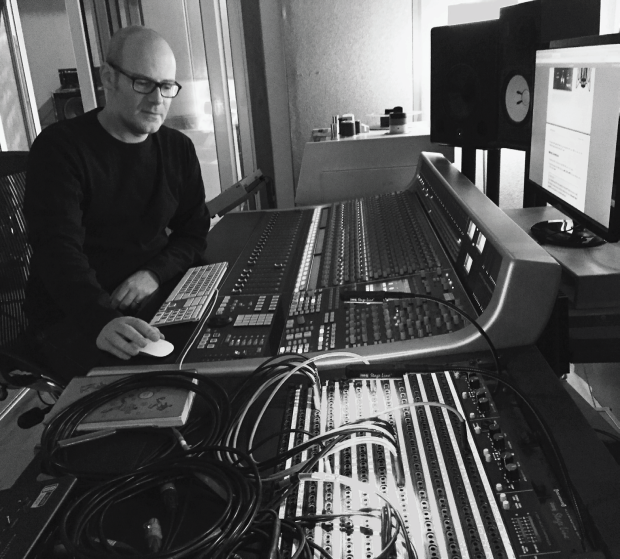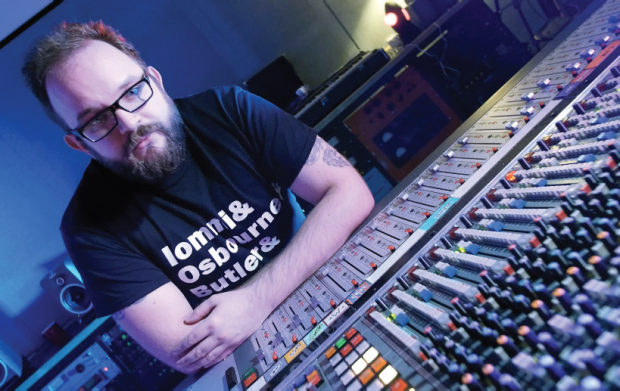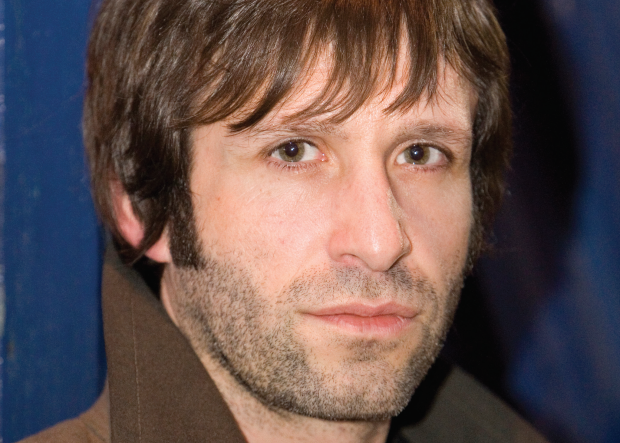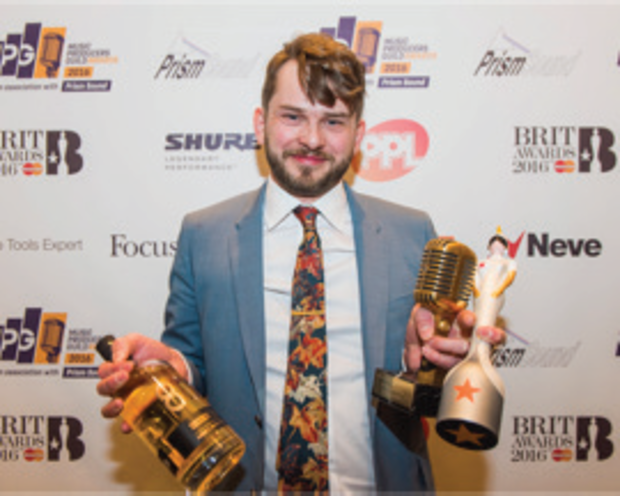
MPG Breakthrough Producer winners on how the award influenced their career
Since launching 10 years ago, the Music Producers’ Guild (MPG) has been synonymous with some of the biggest names in the business, with the likes of Mark Ronson, Flood, Youth, Paul Epworth and a whole host of other major international talents recognised at its annual awards extravaganza.
However, the organisation has also been laying the foundations over the past decades for the brightest up and coming audio engineers and producers to build their careers on. Ahead of the upcoming 2018 MPG Awards, which take place at London’s Grosvenor House Hotel on March 1, 2018, we caught up with some of the previous winners of its annual Best Newcomer and Breakthrough Producer awards to find out where they started out, what they’re up to now and how the MPG award has helped them on their path.
Paul Savage: Breakthrough Producer of the Year 2010

How did you get into audio production?
I started as an engineer in MCM Recording after getting a degree at the SAE Institute. I got the job when the previous engineer left to sell Tupperware. In the first few years’ engineering, I was also playing drums in a band (The Delgados) and things were beginning to take off for us. We started our own label, Chemikal Underground, and soon I was working with most of the bands on the label. I did the debut albums of Mogwai, Arab Strap and The Delgados. In 1997 we took over MCM and renamed it Chem 19. Both the band and label opened up a load of opportunities for me to watch and learn from great engineers and producers. Our first Radio Scotland session was recorded in Glasgow by Tony Doogan who became a big part of our team, recording the rest of our albums. Going to Maida Vale to do Peel sessions was an amazing experience as I got to see some incredible engineers and producers at work in a session.
What is your favourite record that you have produced to date and why?
The most important record for me is Mogwai’s Young Team. I didn’t realise it would have such an impact and to this day I still get a lot of attention for doing that one. This may seem like favouritism, but I am very proud of the work I did on Emma Pollock’s In Search Of Harperfield. Full disclosure, we are married, but I do love how it turned out. On the previous records we had a band involved but this time we did a lot of the basics between the two of us. The space between sessions helped us see how the songs were working – a lot were scrapped, changed and chopped up. The critical response was fantastic and a couple of singles from the album were playlisted on 6 Music. It was also nominated for Scottish Album of the Year.
What did winning the MPG Producer of the Year Award do for your career?
I knew it would have a positive effect but it was much more than I expected. It was like a big stamp of approval. I definitely got a lot more jobs because of it – not so much just because it had happened but I get the impression it tipped the balance in my favour when people were considering their options.
What was your most recent project?
I’m mixing a soundtrack to Anna and the Apocalypse – a zombie Christmas musical out in cinemas soon. I’m also recording an Aidan Moffat and R.M. Hubbert collaboration, plus I’m making final tweaks to mixing Delta Mainline’s new record.
How important is the MPG in supporting young talent?
It’s crucial to show young people trying to make it in the industry that there are people who have followed similar paths. It’s a tough industry. I’ve found the Speakeasy nights that I’ve been to in Glasgow have been packed with young engineers/producers talking to more experienced professionals in a relaxed atmosphere.
Eliot James: Breakthrough Producer of the Year 2011

How did you get into audio production?
I started playing guitar and messing about with four-track recorders when I was very young, then I started using an Atari ST to make dance music in my teens. I ended up getting a single deal with a small dance label, which bought me my first decent sampler, then I was off. After all that I packed myself off to do a college course in music tech and by the end I was producing and engineering sessions in local studios.
What is your favourite record that you have produced to date and why?
One album that stands out for me is Noah & the Whale’s first album. I had just spent a few years working on nothing but indie bands with spikey guitars (Bloc Party, Futureheads etc) and these guys appeared doing something completely different. Musically it was very rewarding with lots of strings and brass, and perhaps a bit closer to my heart than other stuff I had been working on until that point. It really felt like a moment in time, in that it was the very beginning of this UK nu-folk scene, which then spawned the likes of Mumford & Sons and Laura Marling.
What did winning the MPG Producer of the Year Award do for your career?
There’s no doubt the industry exposure from winning an MPG award is a massive bonus to one’s profile, and of course it’s a great look having that little golden microphone sitting in the studio, but for me the most important thing was the morale and confidence boost. It’s a tough business, producing music. It is of course a very subjective craft, and sometimes you have to keep your spirits up through some very challenging moments. For me the reassurance I’ve got from receiving an award from my respected peers has been invaluable. It’s been like a much needed industry pat on the back – available for use in case of emergencies!
What was your most recent project?
Lately I have actually been spending a lot of time writing and recording music with a slightly classical twist under the artist name Pêtr Aleksänder – there are actually two of us, the other being Tom Hobden from Noah & the Whale and Mumford & Sons. The project started out as a bit of fun but seems to have grown into something a bit more serious in that we now have management and are about to sign our first album deal. Having said that, I’ve been pretty busy on productions too. Earlier on this year I had a great time producing the new Coronas album, which landed the number one spot in Ireland over the summer. More recently I’ve just been recording new material with a great band called Banfi and am just beginning work on some recordings with a very talented young singer songwriter called Tadhg Daly.
How important is the MPG in supporting young talent?
The MPG plays a very important role in supporting young talent, particularly with its breakthrough award categories. But aside from that, the MPG has created a community and network for the UK recording industry, which is hugely important, especially for up and coming talent, and even more so now that there are fewer and fewer large recording studios, which perhaps used to offer a kind of social hub for engineers and producers. There’s nothing more reassuring and encouraging than going out and finding kindred souls in the same boat and the MPG is all about that, so hats off to them.
Tom Dalgety: Breakthrough Producer of the Year 2015

How did you get into audio production?
I was in a band, and when we first went into a proper studio I just loved it and didn’t want to leave! So, I started making tea there and assisting the producer we worked with.
What is your favourite record that you have produced to date and why?
Either Head Carrier by the Pixies or Sorceress by Opeth. Very different records by very different bands, but they both have a very live feel to them, which I love.
What did winning the MPG Producer of the Year Award do for your career?
I suppose it’s hard to tell exactly, but it was a huge honour and it definitely felt like a turning point.
What was your most recent project?
I’ve just finished mixing the new Turbowolf album and am also mixing a theme for a TV show with Royal Blood.
Andrew Hunt: Breakthrough Producer of the Year 2017

How did you get into audio production?
I started playing in covers bands from around nine or 10 years old and just carried on. I had publishing and production deals but it was still just my hobby. I tinkered around with four-tracks and digital recorders doing my own demos, then about 10 years ago, while playing session guitar on an album, I got asked to produce it. I loved it and so in 2012 decided to leave my job as a maths teacher and concentrate on music as my job.
What is your favourite record that you have produced to date and why?
I’m really happy with Mountain Top by Hazel Iris, which contributed to winning the MPG Award. She came to me with a specific brief: ‘You know when you’ve woken from a dream but you’re not sure if it was a comfortable dream or not? Well, I dreamt I was in a clockwork forest. I want this record to sound like that!’ It made perfect sense to me! She tells me I hit the brief perfectly.
What did winning the MPG Producer of the Year Award do for your career?
The projects that are coming in now are all of a certain calibre and I think that’s a direct result of the award, plus I’ve been asked to do some TV work – they approached me after seeing my award’s speech online.
How important is the MPG in supporting young talent?
The great thing about the MPG Breakthrough Awards is that they’re not defined by age. It’s to do with recognising a significant step up in work, regardless of age, or how long you’ve been in the industry – I think the MPG does amazing work.
Charlie Andrew: Breakthrough Producer of the Year 2013

How did you get into audio production?
At school I was taught the drums and saxophone. I was really lucky that the school had a small studio with Cubase, an Akai S3000 and a few other toys and I really got the bug for it. After school I sent letters to a load of studios and managed to get a job as a runner at Abbey Road. I then did a Tonmeister degree at Surrey University. Once I finished that I invested in a Pro Tools LE rig and began recording bands as much as I could and eventually moved back to London. By this point my university band, The Laurel Collective, was going strong as well.
What is your favourite record that you have produced to date and why?
I couldn’t possibly pick a favourite – they are all like my children – but I suppose there have been a few records that have had more of an influence on my career. An Awesome Wave by Alt-J is the obvious one; it was the first album I produced myself from start to finish and put me on the map as a producer. Suicide Songs by Money was another important one; it’s so different to anything else I’d produced up to that point in my career. It really taught me a lot and helped me pick up skills I’ve been able to apply in other sessions. I’m constantly striving to learn and develop new ways of approaching projects because each one has their own identity that has to be captured.
What did winning the MPG Producer of the Year Award do for your career?
I think it gave everything I’ve been doing a big credible endorsement. To have that sort of recognition from my peers is such a great honour and it’s certainly helped to open up some doors, particularly with press and tech companies. It’s difficult to quantify exactly what effect it’s had, but I’m certain it’s only had a positive influence!
What was your most recent project?
I recently set up a record label, so the last two albums with my name on have been on the label. Francobollo and Sivu, which we put out. I’m enormously proud of both albums and it’s great to have them signed to my label. Prior to that, the Marika Hackman and Alt-J albums came out earlier this year, which were both fantastic to make. I’m currently working with the band James and have recorded some singles with a couple of new bands, that I don’t think have been announced yet, that sound great and I think you’ll hear next year.
How important is the MPG in supporting young talent?
I think the MPG is a fantastic resource for producers at any stage of their career. In terms of the awards, it’s a great leg up, but beyond that they not only run loads of great networking nights, but they do panels and workshops all over the country to help new producers learn and grow. The lobbying they do on our behalf is also essential. It’s something I’ve had a little involvement with and would love to be further involved; as our industry evolves it’s important for producers to be able to speak with one voice and have someone representing what we do.
Source: mi-pro.co.uk












